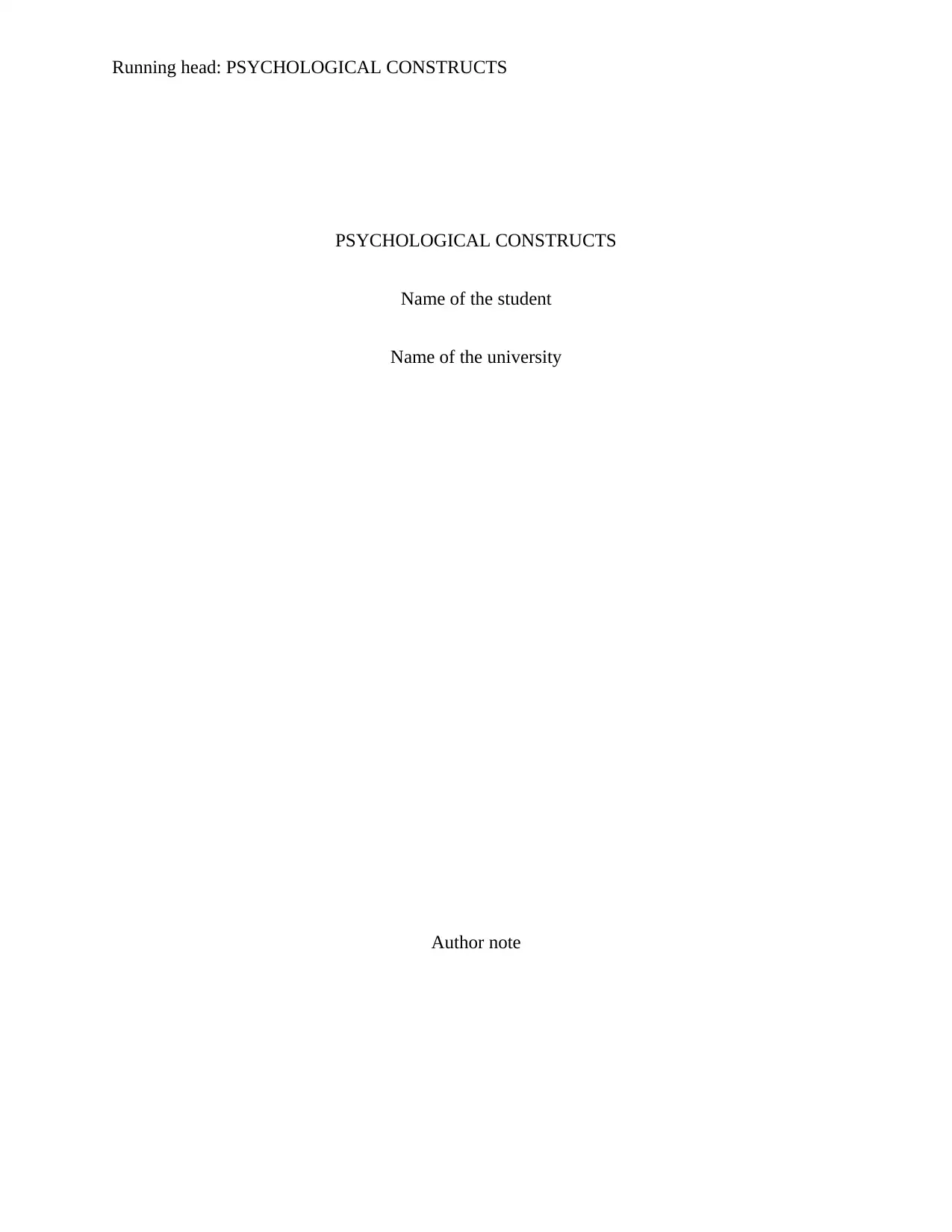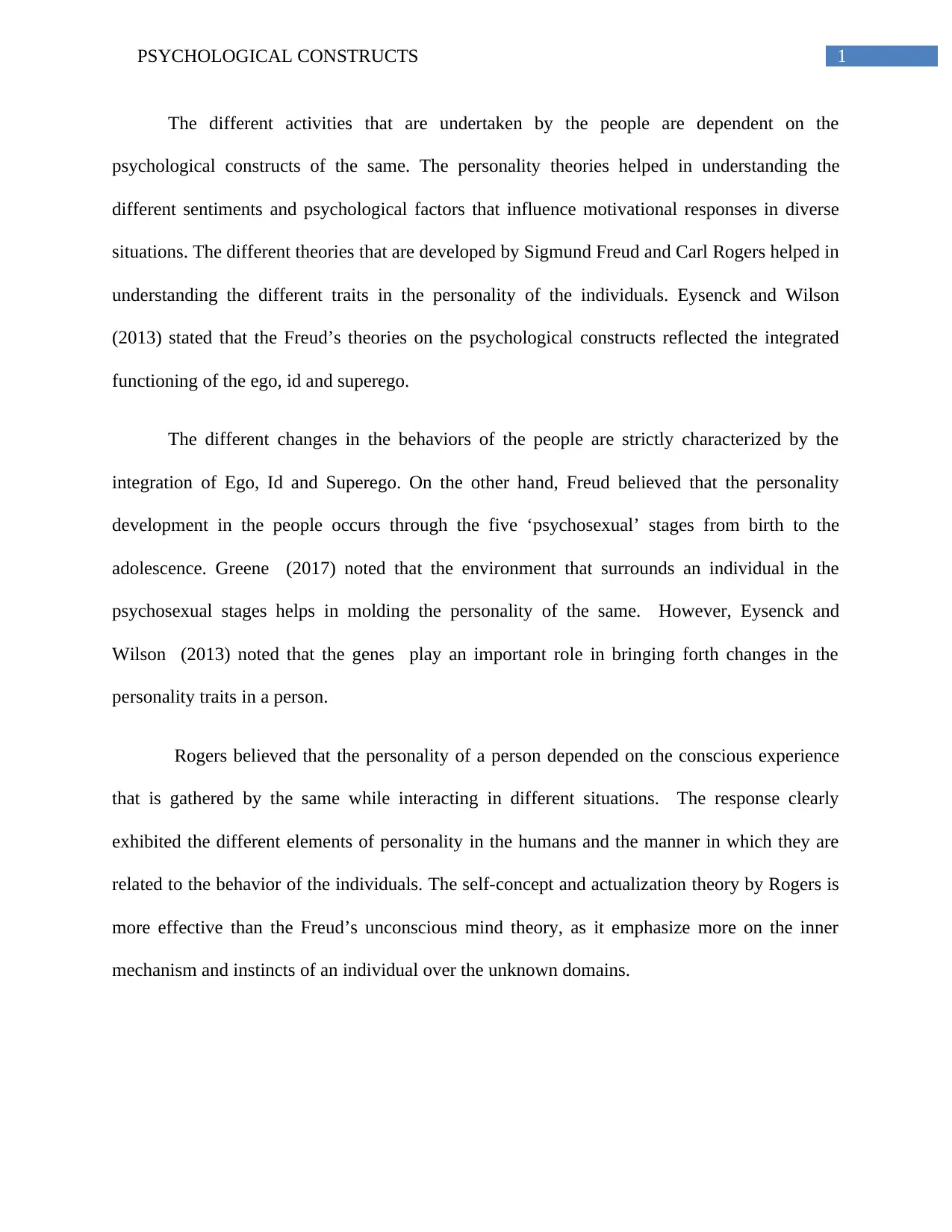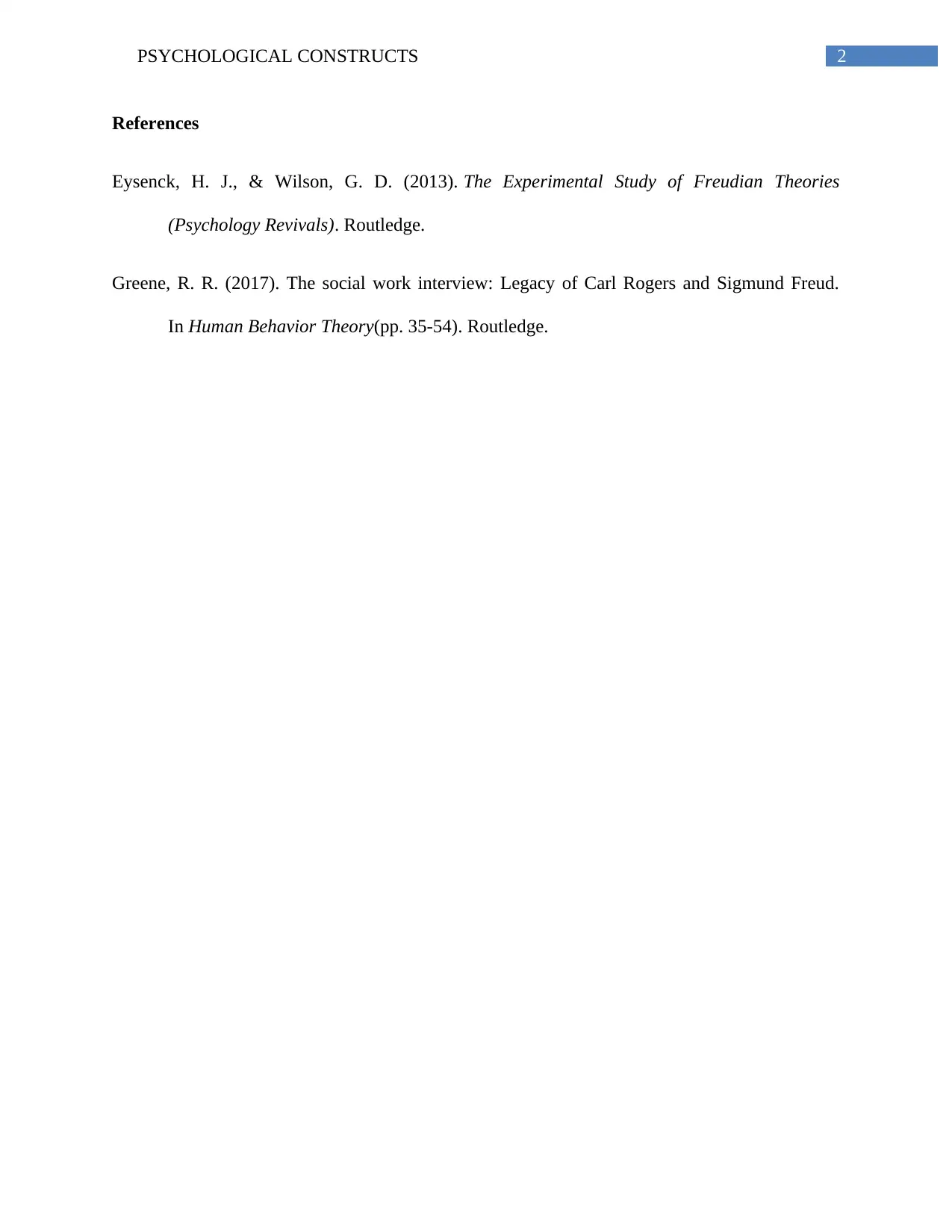Analysis of Psychological Constructs: Freud's and Rogers' Theories
VerifiedAdded on 2023/04/23
|3
|369
|211
Essay
AI Summary
This essay explores psychological constructs through the lens of Sigmund Freud's and Carl Rogers' personality theories. It contrasts Freud's emphasis on the ego, id, superego, and psychosexual stages with Rogers' focus on conscious experience, self-concept, and actualization. The essay highlights Freud's belief that personality develops through psychosexual stages influenced by the environment, while Rogers emphasizes the importance of conscious experiences in shaping personality. Ultimately, the essay argues that Rogers' self-concept and actualization theory is more effective than Freud's unconscious mind theory, as it places greater emphasis on an individual's inner mechanisms and instincts. Desklib provides access to this and other solved assignments to aid student learning.
1 out of 3










![[object Object]](/_next/static/media/star-bottom.7253800d.svg)